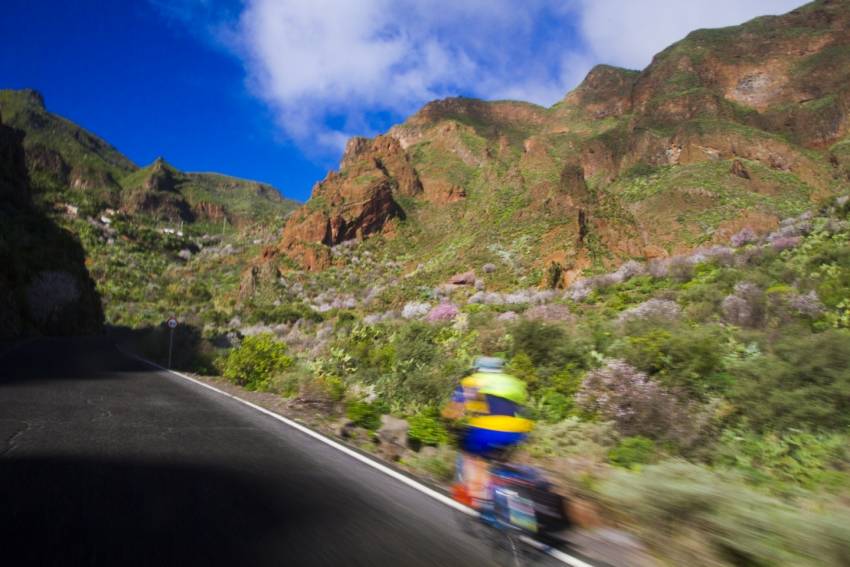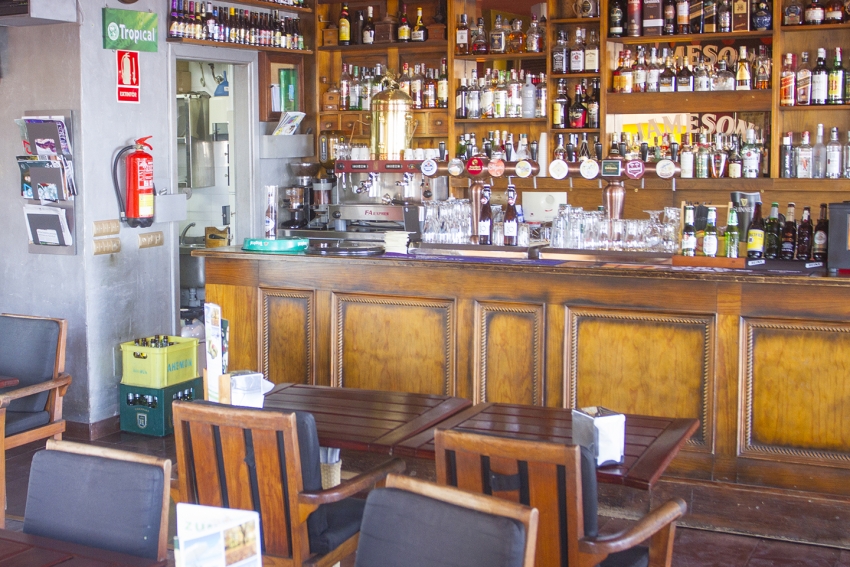Caves, Bees And Blossom At Guayadeque Gorge
The Guayadeque gorge is easily the most interesting day trip in East Gran Canaria, especially combined with Aguimes old town and an afternoon swim at Arinaga. It's also a pain in the neck for visitors.
You'll get one from looking up at the high cliff walls and cave houses, then from ducking into the cave houses and chapel. Even the restaurant at the end of the road is carved into the rock.
The hum
Sound carries in the gorge and you'll hear dogs barking from their cave kennels and the shrill cry of kestrels as they harry the buzzards overhead. And then you'll notice the hum.
From their hives clustered high up on the valley sides Guayadeque's bees feast on a rolling buffet of flowers. The first course is a feast of pink and white almond blossom in January, followed by yellow broom, purple lavendar and blue bugloss flowers. There's always something in flower here: Guayadeque is one of the most biodiverse spots in Europe, home to dozens of unique Canarian plants.
Try the honey in the cave shops by the chapel half way up the valley.
Cavemen
Guayadeque was a stronghold for the island's original inhabitants. They were the valley's first troglodytes and their traces are everywhere. Visit the interpretation centre at the beginning of the valley road for details on their lives here and the traces they left behind.
Modern day locals still live in cave houses in the valley, although many have turned them into rural houses for visitors. In the old days it wasn't just the people that lived in cavesbut entire farms with everything from cows to rabbits dwelling inside the rocks.
Alex Says: Guayadeque is vertigo-sufferers gateway to the landscapes of central Gran Canaria. You get the monumental cliffs and rocks of the cumbres without steep drop offs.
Gran Canaria Info recommends:
- Default
- Title
- Date
- Random
Join the Gran Canaria Info newsletter list
Gran Canaria info recommends
-

The Best Value Car Rental Service In Gran Canaria
-

Casa Romantica: A Classic Gran Canaria Restaurant Reborn
-

Hassle-Free Gran Canaria Car Hire
-

Which Gran Canaria Airport Transfer Service Is The Best?
-

Gran Canaria Shopping: Start At Fundgrube For Price & Quality
-

Off The Beaten Track With A Gran Canaria Buggy Trip
- 1
Follow us on Facebook
Tip of the day
Latest articles
Who's Online
We have 4629 guests and no members online







